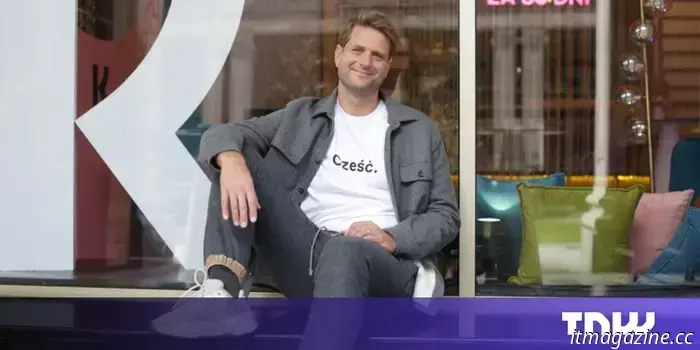
Tech executives criticize "incredibly toxic" demands for seven-day work weeks.
European tech leaders are countering prominent venture capitalists who are advising founders to work every day of the week, labeling the grind culture as everything from "toxic" to "childish."
“Encouraging founders to work excessive hours without rest is simply poor guidance,” stated Suranga Chandratillake, general partner at Balderton Capital and former CEO of the video search engine Blinkx, in an interview with TNW. “Even sprinters don’t sprint continuously—taking time for rest and introspection is equally essential as hard work.”
His remarks came in response to a LinkedIn post last Saturday by Harry Stebbings, the podcast host and 28-year-old founder of the London-based venture firm 20VC. In his post, Stebbings suggested that European founders must recognize that working seven days a week is the necessary pace to be successful now, inferring that they should adopt the notorious grind mentality of Silicon Valley.
Martin Mignot, a partner at New York’s Index Ventures, supported Stebbings’ perspective. In a LinkedIn post, he praised the 9am to 9pm, six days a week (illegal) work culture seen in some Chinese tech companies. “Forget the 9 to 5; 996 is the new standard for startups,” he remarked.
The latest discussions within the EU tech community, along with insights from our experienced founder Boris and some questionable AI-generated art, are available for free in your inbox every week. Sign up now!
While some echoed these sentiments, numerous European tech founders and investors expressed their discontent with this rhetoric. Amelia Miller, co-founder of the return-to-work platform Ivee, deemed Stebbings’ post “unbelievably toxic.”
“Only ineffective founders work non-stop for seven days,” she asserted. “It reflects poor time management and is a fast track to burnout.” Miller also indicated that insisting on such long hours unfairly disadvantages parents and others with commitments outside work.
Chandratillake cautioned against taking advice from venture capitalists lacking firsthand experience in founding and managing a company. “As a CEO, avoid listening to some self-important finance individual in a hoodie who has never completed your role advising you on how to do it!” he remarked.
This spirited discussion is part of a larger dialogue in European tech about whether workplace culture is hindering the region's competitiveness compared to the US or China.
In a podcast interview in March, Revolut CEO Nik Storonsky criticized European startup founders, claiming they weren’t putting in enough effort and placed too high a value on work-life balance. His comments followed another heated social media conversation earlier this year regarding whether French founders possessed the required “grindset” to succeed.
However, a recent survey conducted by early-stage VC firm Antler of 128 European founders revealed that three-quarters of them work more than 60 hours a week, with nearly 20% exceeding 80 hours, challenging the idea that European founders lack drive.
Chandratillake opined that focusing solely on work hours can distract from the substantial challenges that founders in Europe face, such as securing late-stage financing. Nevertheless, he acknowledges that there are occasions when hard work and long hours are necessary.
“Occasionally, founders must exert tremendous effort and work long hours, but that is not a sustainable practice over time,” he stated. “Building a successful company is a marathon; it requires endurance.”
European startup founders are vital to the TNW Conference—and we want you to participate as well. The tech festival is set for June 19-20 in Amsterdam. Use the code TNWXMEDIA2025 at checkout to receive a 30% discount on tickets.
Other articles
 The EU has approved the first mixed reality flight simulator designed for pilot training.
For the first time, the European Union Aviation Safety Agency (EASA) has approved a mixed reality headset for training in civil aviation.
The EU has approved the first mixed reality flight simulator designed for pilot training.
For the first time, the European Union Aviation Safety Agency (EASA) has approved a mixed reality headset for training in civil aviation.
 Behind the surge of blind boxes: the worldwide rise of Pop Mart’s Labubu
On Tuesday, Pop Mart's shares reached an all-time high, elevating its market capitalization to over HK$310 billion ($39.7 billion) following an increase of more than 160% this year.
Behind the surge of blind boxes: the worldwide rise of Pop Mart’s Labubu
On Tuesday, Pop Mart's shares reached an all-time high, elevating its market capitalization to over HK$310 billion ($39.7 billion) following an increase of more than 160% this year.
 Klarna's CEO: Engineers may fall behind business professionals with coding skills.
Sebastian Siemiatkowski states that the quickest achievers at Klarna are not conventional engineers, but rather business individuals who have acquired coding skills.
Klarna's CEO: Engineers may fall behind business professionals with coding skills.
Sebastian Siemiatkowski states that the quickest achievers at Klarna are not conventional engineers, but rather business individuals who have acquired coding skills.
 TNW Backstage interviews the founder who transformed flower delivery.
This week on TNW Backstage, the guest is Aron Gelbard, co-founder and CEO of Bloom & Wild, which is the highest-rated online flower delivery service in the UK.
TNW Backstage interviews the founder who transformed flower delivery.
This week on TNW Backstage, the guest is Aron Gelbard, co-founder and CEO of Bloom & Wild, which is the highest-rated online flower delivery service in the UK.
Tech executives criticize "incredibly toxic" demands for seven-day work weeks.
Venture capitalists encouraging startup founders to put in seven days of work each week are encountering criticism from European tech leaders, who label the notion as "toxic" and "childish."
